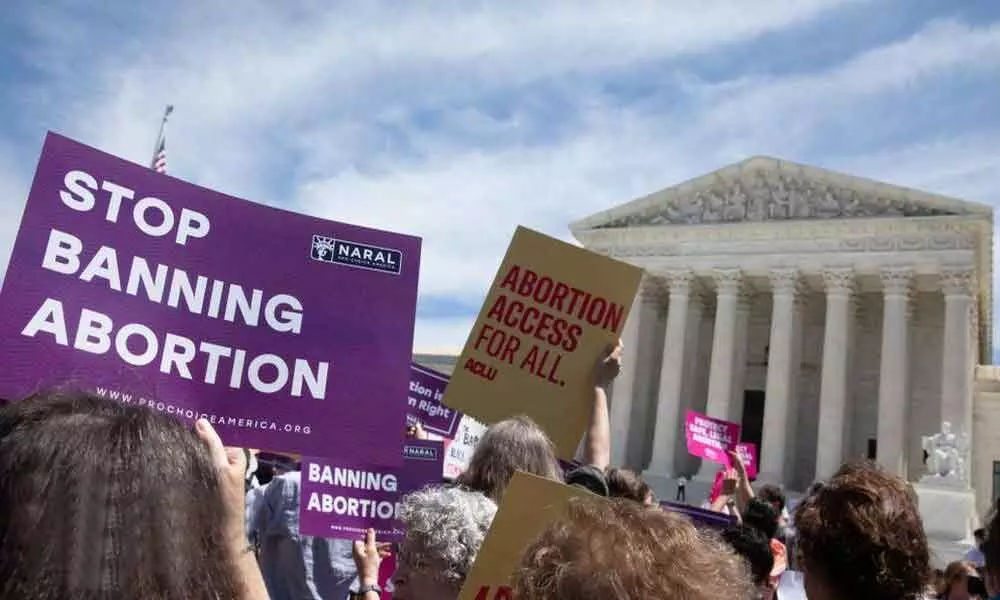Abortion still a raging issue in US

Abortion still a raging issue in US
A transformed US Supreme Court on May 17 agreed to hear an abortion case that directly challenges women's reproductive rights. After months of internal debate on the matter, the justices announced that they would add to their 2021-22 session a dispute over a Mississippi ban on abortions after 15 weeks.
The controversy, which would likely be heard in the fall and decided by June of 2022. A couple of earlier cases had prevented effectively bans on pre-viability abortions, that is, before the foetus would be able to live outside the womb. The court placed viability at 23-24 weeks in one such 1992 case.
In 1973, the Supreme Court of the United States made a decision in the case of Roe vs Wade. The decision passed to uphold a woman's right to abort an unborn child based on the fourteenth amendment.
The fourteenth amendment states "No state shall make or enforce any law which shall abridge the privileges or immunities of citizens of the United States; nor shall any state deprive any person of life, liberty, or property, without due process of law; nor deny to any person within its jurisdiction the equal protection of the laws."
Thus, the court decided that based on the right of citizens of the US to privacy, the fourteenth amendment upholds the right to terminate a pregnancy before term. However, the mother's right to privacy must be balanced against the rights of the unborn child.
Roe v Wade concluded that states had no right to limit abortions in the first trimester of pregnancy, states had the right to impose some limitations in the second trimester, and states had the right to prevent abortions in the third trimester unless there is severe health and safety risk to the mother.
From Roe v Wade, courts are further required to evaluate challenged abortion laws under strict scrutiny, the highest level of judicial review. Under strict scrutiny, the laws must be addressing a specific and important state interest, that the laws must be tailored to specifically address that purpose, and that the laws must accomplish this task in the least restrictive way possible.
Abortion politics have influenced the presidential screening of nominees, senators' votes and the increasing force of special interest groups in the confirmation orbit. Republican lawmakers especially have fought to make this moment possible, in statehouses across the country and in the US Senate.
For nearly 30 years, the justices spurned appeals that would have meant such a deep reconsideration of precedent.
The court worked around the edges, in recent cases reviewing regulations on clinics and physicians, issues that affected women's access to abortion but not the core right or viability line.
Newer justices increasingly complained about the pattern. Conservatives who voiced an interest in reversing prior decisions on abortion were no doubt unsure whether they would have at least five votes for a major decision.
The medical profession has a long way to go before abortion services become part of routine care, and well-organised, intensely motivated activists can always pressure wobbly elites.
Abortion will thus remain a flashpoint in U.S. national and state politics, as well as in continuing disputes over medical services and judicial appointments. The end of this morally charged political battle is not yet in sight. Or is it?




